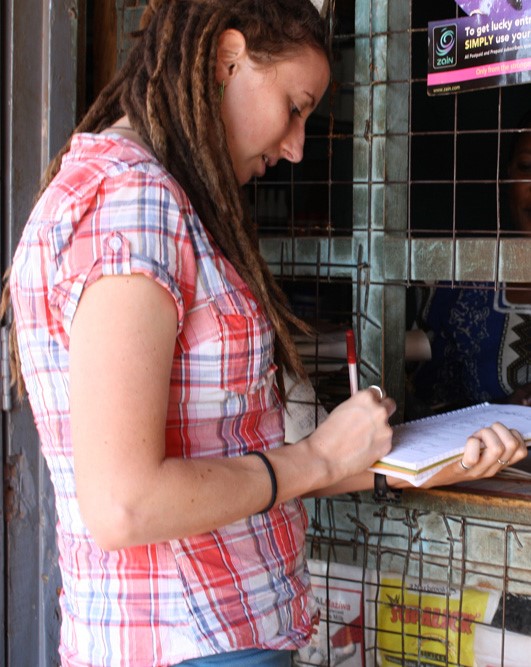Jacqueline (Jackie) Stenson, Jesus College, 2010
Jacqueline Stenson is from the United States, and studied Mechanical Engineering at Harvard University in Cambridge, Massachusetts. After completing her bachelor’s degree, she worked with five different organisations in Eastern and Southern Africa that focused on technologies in low-income markets. During her travels, she discovered that the real challenge facing these life-improving technologies is not technical design but rather dissemination, and this became her new passion. She completed her MPhil in Engineering for Sustainable Development in 2011.
Dissertation:
New Product Introduction Strategies in Eastern Africa: A Framework for Diffusing Appropriate Technology
Jackie’s Report:
After finishing my bachelor’s degree in mechanical engineering, I spent nearly two years working on engineering design projects in low-income markets in sub-Saharan Africa. During this time, I quickly learned core product design is only a small part of international development, and that the real challenge is technology dissemination and distribution models. My focus shifted to exploring how to effectively and sustainably help technologies reach low-income markets, and I recognised a need to build upon my knowledge in an academic setting. The Engineering for Sustainable Development MPhil programme at Cambridge offered the perfect combination of coursework and research for my broad engineering interests.
At Cambridge, I had the opportunity to consider engineering projects in their greater context by studying topics ranging from technology policy to creating organisational change to how to manage the innovation process. My MPhil dissertation focused on a question that had been on my mind for multiple years: how to effectively and sustainably diffuse technologies throughout low-income markets. I conducted field research on new product introduction strategies that are currently being used to reach emerging market customers in Kenya, and how these strategies can be applied to innovations such as appropriate technologies so to increase sustainable development.
Ultimately, I used my MPhil research and coursework as the basis for my next step in life: co-founding a social enterprise that distributes a catalogue of life-improving goods to local retail shops, thus improving local businesses and enabling technology access for rural end users. My venture, called Essmart, launched operations in southern India in 2012. Additionally, I have supported technology design and dissemination initiatives at Harvard’s School of Engineering and Applied Sciences, with the goal of helping students design products that are better poised for real-world impact.

